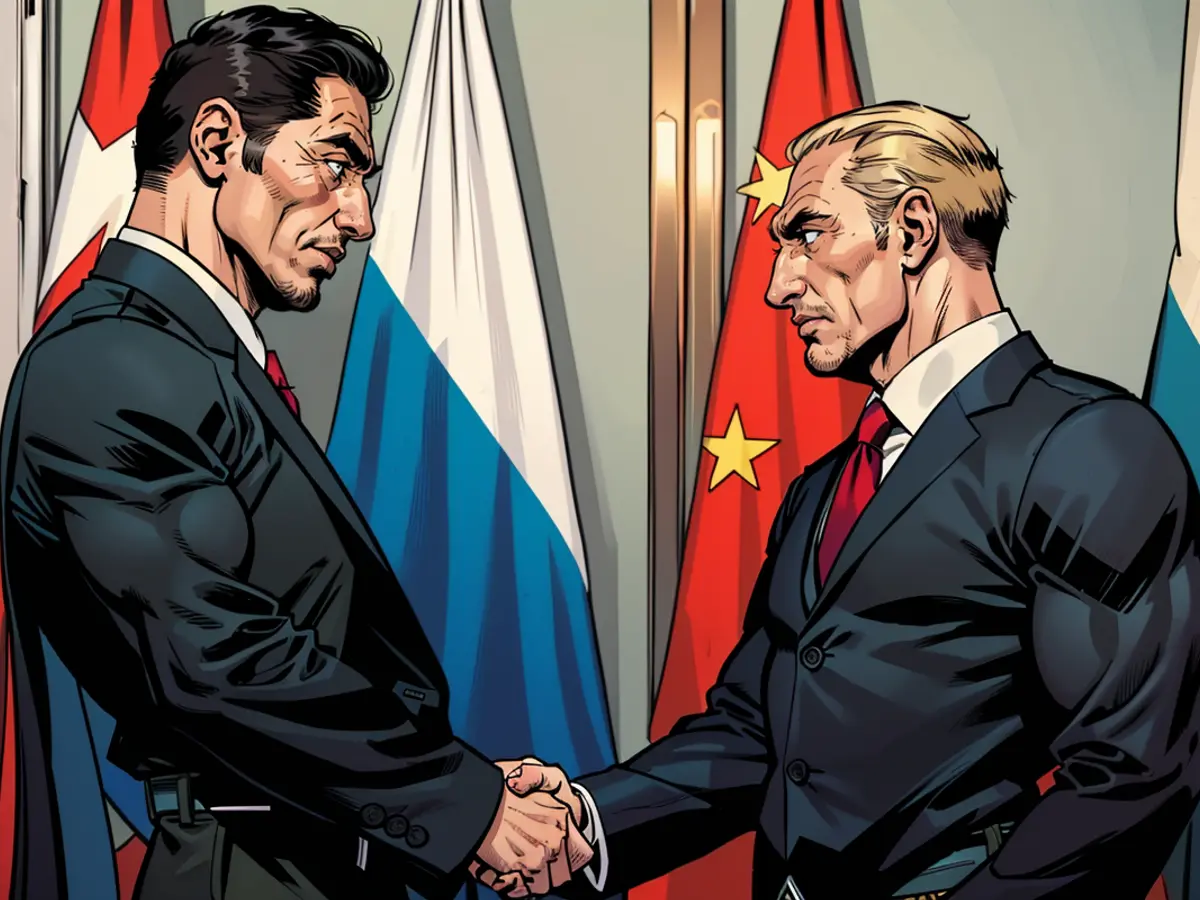Putin and Xi deepen anti-Western alliance at summit in Kazakhstan
Xi urged member states to "support each other, care for each other's concerns (...) and take the future and fate of our countries, as well as peace and development in the region, into our own hands". It is of "decisive importance" that the SCO "stays on the right side of history".
Putin stated that the "multipolar world" is now a "reality". In addition, he welcomed the accession of Russia's ally Belarus into the group.
The state group led by Moscow and Beijing had announced Belarus' accession in the Telegram online service earlier. Minsk's accession was decided at the previous virtual summit of the organization, which was organized by India.
To the SCO, there have been nine countries so far, representing approximately half of the world population. Among the permanent members are the current host Kazakhstan, India, China, Kyrgyzstan, Pakistan, Russia, Tajikistan, Uzbekistan, Iran, and now also Belarus.
In addition to these, there are 14 so-called dialogue partners, such as NATO member Turkey and several Gulf states. Turkish President Recep Tayyip Erdogan also participated in the summit in Kazakhstan.
In a joint statement released by the Kremlin, the group referred to the "tectonic shifts in global politics" and called for a greater role of the SCO in matters of global and regional security.
"The use of force is increasing, international law norms are systematically violated, geopolitical confrontations and conflicts are intensifying, and the risks to stability in the world and in the SCO region are increasing," the statement reads. The Russian invasion of Ukraine or China's conflict with Taiwan were not mentioned in the document. The group emphasized "mutual respect for sovereignty, independence, and the territorial integrity of states" in the statement.
In the final statement, the bloc also criticized the "unilateral and unrestricted build-up" of missile defense systems by unnamed countries and regional alliances - a common accusation from Moscow and Beijing against the United States.
The SCO was founded in 2001 and gained importance in recent years. It is intended to be a platform for cooperation in competition with the West, with a focus on security and economics, as well as Central Asia. The next meeting is scheduled to take place in October in Pakistan.
- Xi Jinping, during the SCO summit, urged all member states to support each other and take the future of their countries into their own hands.
- Putin, at the same summit, welcomed Belarus' accession into the SCO, highlighting Russia's alliance with the Eastern European nation.
- The decision to include Belarus in the SCO was made during a virtual summit organized by India, which represents one of the permanent members of the group.
- With Belarus' addition, the SCO now consists of 10 permanent members, including China, Pakistan, India, Russia, and Kazakhstan, among others.
- Turkish President Recep Tayyip Erdogan also participated in the summit in Kazakhstan, representing one of the 14 dialogue partners of the SCO.
- The joint statement released after the summit expressed concern over tectonic shifts in global politics and called for a greater role of the SCO in matters of global and regional security.
- Vladimir Putin and Xi Jinping, leaders of Russia and China respectively, emphasized the importance of mutual respect for sovereignty and territorial integrity in the final statement.
- In a common criticism, the SCO bloc criticized the unilateral and unrestricted build-up of missile defense systems by unnamed countries and regional alliances, a veiled reference to the United States.







